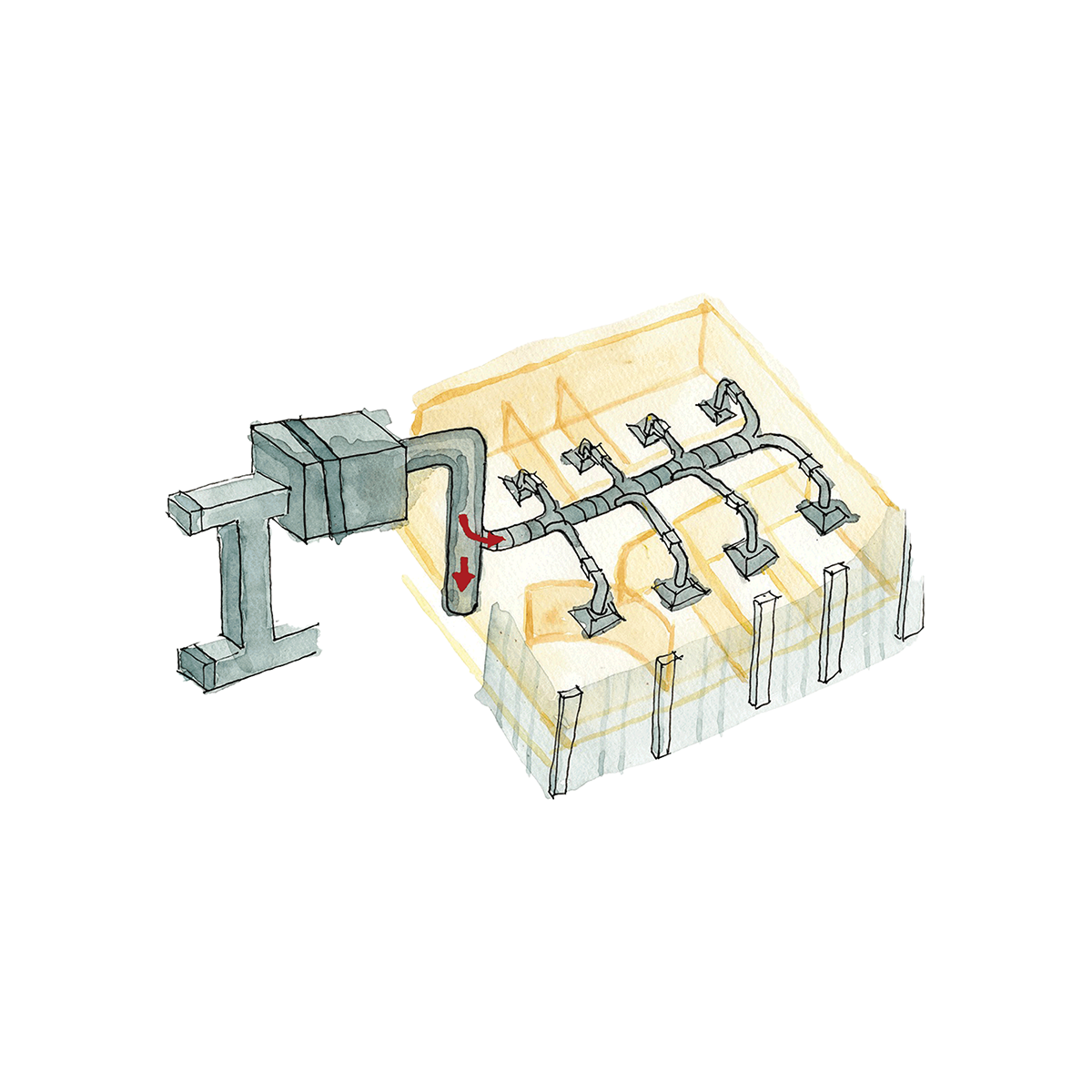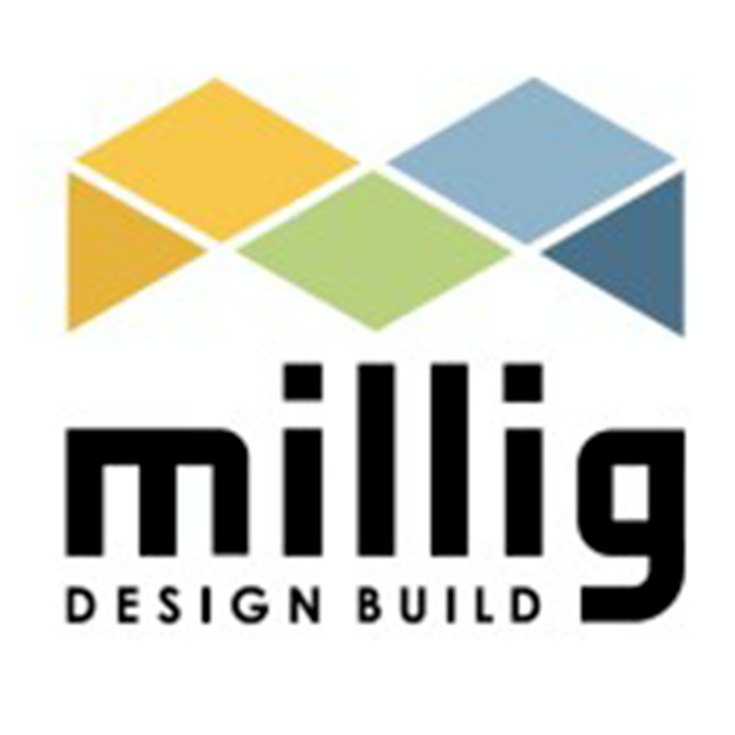
By Amy McVey
About Variable Air Volume Systems
Variable Air Volume (VAV) systems are one of the most common HVAC systems used in large commercial buildings. One reason is that VAV systems can easily accommodate high demand in one area and low demand in another, delivering comfort for everyone.
VAV systems work by providing a variable amount of airflow throughout a series of ductwork to service the needs of multiple diverse spaces. At the end of the ductwork, the conditioned air passes through a VAV box. As the air reaches the VAV box, a damper modulates the airflow necessary for each space to satisfy the zone cooling setpoint. VAV boxes serving spaces requiring mechanical heating are equipped with a reheat coil that uses hot water to warm the air supplied to the space and satisfy the zone heating setpoint. Chilled water is often produced by a chiller. In a typical VAV system, hot water is provided by a central gas boiler or air-source or ground-source heat pumps.
Advantages of VAV Systems
Precise temperature control
Can handle large amounts of ventilation air
Quiet operation
Easy to design and install in a new facility
Long system life and simple to maintain
Disadvantages of VAV Systems
Expensive to retrofit into an existing building
More complex to control and operate properly
A large amount of ductwork is necessary, which increases the first-cost significantly
About Amy McVey
Amy is passionate about increasing the environmental quality of the built environment and lowering the impact buildings have on climate change. As the Director of Marketing, Amy works closely with Millig Design Build’s interdisciplinary team to elevate thought leadership around energy efficiency, building health and safety, indoor air quality, and decarbonization. Before helping start Millig Design Build, Amy worked in advertising as a creative director.
OUR SOLUTIONS
Heating, ventilation, and air conditioning
Smart meters and building controls
On-site solar and other renewable energy systems
LED lighting retrofits
Building envelope improvements
Water systems
CHP-Cogeneration
And more
CONTACT US


